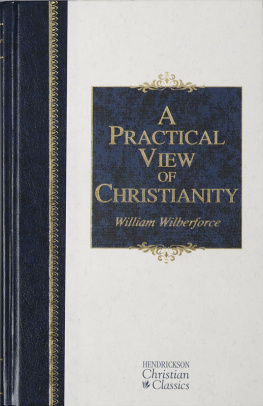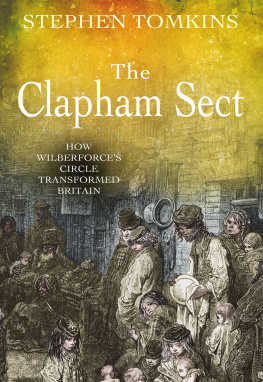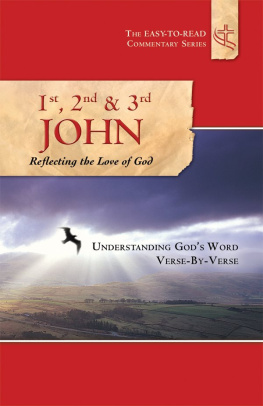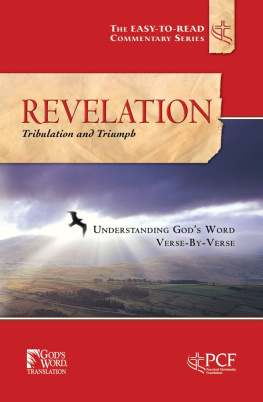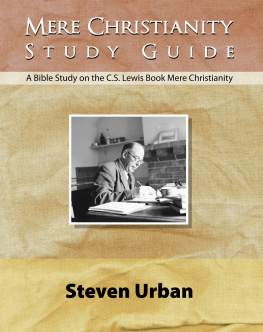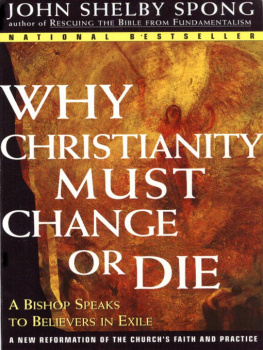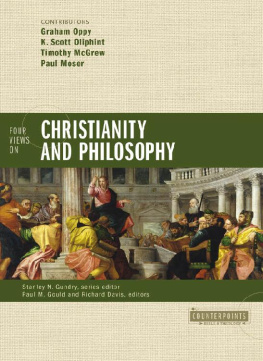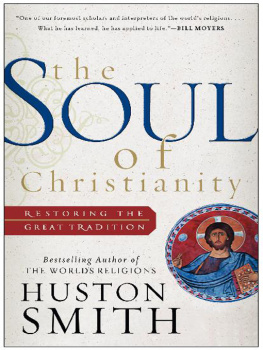All rights reserved. No part of this book may be reproduced or transmitted in any form or by any means, electronic or mechanical, including photocopying, recording, or by any information storage and retrieval system, without permission in writing from the publisher.
Due to technical issues, this eBook may not contain all of the images or diagrams in the original print edition of the work. In addition, adapting the print edition to the eBook format may require some other layout and feature changes to be made.
PREFACE TO THE HENDRICKSON CHRISTIAN CLASSICS EDITION
William Wilberforce
(17591833)
I must confess equally boldly that my own solid hopes for the well-being of my country depend, not so much on her navies and armies, nor on the wisdom of her rulers, nor on the spirit of her people, as on the persuasion that she still contains many who love and obey the Gospel of Christ. I believe that their prayers may yet prevail.
William Wilberforce
T he congressmans face betrayed his anger. The Republicans accept the religious right and their tactics at their own peril, he thundered. These activists are demanding their rightful seat at the tableand that is what the American people fear most. And then Representative Vic Fazio ominously asked, Should they attempt to impose their personal religious views and ethical beliefs on the party system?
Sounds pretty scary, doesnt it? You can almost see these activists tossing the Constitution into the trash with one hand while shoving other peoples kids into Sunday School with the other. How intolerant. How dogmatic. And how utterly ridiculous.
As we enter the twenty-first century, Christians are increasinglyand rightfullytaking their place in the public square. But were discovering that plenty of people want to roll up the sidewalk when they see us coming. Bigot. Zealot. Extremist. Many sling these verbal stones at us whenever we invade what they consider their turf.
But this is not new. These strident voices echo those of an earlier generation of politicianspoliticians who accused the Christians of their day of imposing their morality when they dared to carry their faith into public life. And at no one did they hurl that accusation more vociferously than the great abolitionist, William Wilberforce.
Old Palace Yard, London, October 25, 1787: A slight young man sat at his oak desk in the second-floor library. As he adjusted the flame of his lamp, the warm light shone on his piercing blue eyes, oversized nose, and high wrinkled forehead. His eyes fell on the jumble of pamphlets on the cluttered desk. They were all on the same subject: the horrors of the slave trade, grisly accounts of human flesh being sold, like so much cattle, for the profit of his countrymen.
The young man would begin this day, as was his custom, with a time of personal prayer and scripture reading. But his thoughts kept returning to those pamphlets. Something inside himthat insistent conviction hed felt beforewas telling him that all that had happened in his life had been for a purpose, preparing him to meet that barbaric evil head-on....
Wilberforce was born in Hull, England, in 1759, the only son of prosperous merchant parents. Though an average student at Cambridge, his quick wit had made him a favorite among his fellows, including William Pitt, with whom he shared an interest in politics.
After graduation Wilberforce ran as a conservative for a seat in Parliament from his home county of Hull. Though Wilberforce was only twenty-one at the time, the prominence of his family, his speaking ability, and a generous feast he sponsored for voters on election day carried the contest.
The London of 1780, when Wilberforce arrived to take office, was described as one vast casino where the rich counted their profits through a fog of claret. Fortunes were lost and won over gaming tables, and duels of honor were the order of the day. The citys elegant private clubs welcomed young Wilberforce, and Wilberforce happily concentrated on pursuing both political advancement and social pleasure.
Far from the homes of the rich, the poor were crammed together in grimy cobblestoned neighborhoods. They were living cogs in Britains emerging industrial machines. Pale children worked as many as eighteen hours a day in the cotton mills or coal mines, bringing home a few shillings a month to their parents, who often wasted it on cheap gin.
Newgate and other infamous prisons overflowed with debtors, murderers, children, and rapists. Frequent executions provided a form of public amusement. In short, London was a city where unchecked passions and desires ran their course. Few raised their voices in opposition.
So it is not surprising that few argued against one of the nations most bountiful sources of wealththe slave trade. Political alliances revolved around commitments to it. In a celebrated case in Englands high court only four years earlier, slaves had been deemed goods and chattels. They could be thrown overboard and drowned by sea captains, all within the law.
Government corruption was so widespread that few members of Parliament thought twice about the usual practice of accepting bribes for their votes. The same attitude reigned in the House of Lords. Their political influence in Parliament grew until a large voting bloc was controlled by the vested influence of the slave trade.
The horrors of the trade were remote and unseen, the cotton and sugar profits they yielded very tangible. So most consciences were not troubled about the black men and women suffering far away on remote Caribbean plantations.
Early in 1784, Wilberforces friend William Pitt was elected prime minister at the age of twenty-four. This inspired Wilberforce to take a big political gamble. He surrendered his safe seat in Hull and stood for election in Yorkshire, the largest and most influential constituency in the country. Thanks in part to the power of his oratory, Wilberforce was elected.
Shortly afterward, Wilberforce agreed to take a tour of the continent with his mother, sister and several cousins. When he happened to run into his old schoolmaster from Hull, Isaac Milner, Wilberforce impulsively invited him to join the traveling party. That invitation was to change Wilberforces life.
Isaac Milner was a large, jovial man whose forceful personality had contributed to the spread of Christian influence at Cambridge. Not unnaturally, then, he raised the matter of faith to his former pupil as their carriage ran over the rutted roads connecting Nice and the Swiss Alps. Wilberforce initially treated the subject flippantly, but eventually agreed to read the scriptures daily.
The summer session of Parliament forced Wilberforce to make a break in his travels. When he and Milner continued their Continental tour in the fall of 1785, Wilberforce was no longer the same frivolous young man. He returned to London in early November, feeling weary and confused. In need of counsel, he sought advice from John Newton, the former captain of a slave ship and now a committed Christian.

